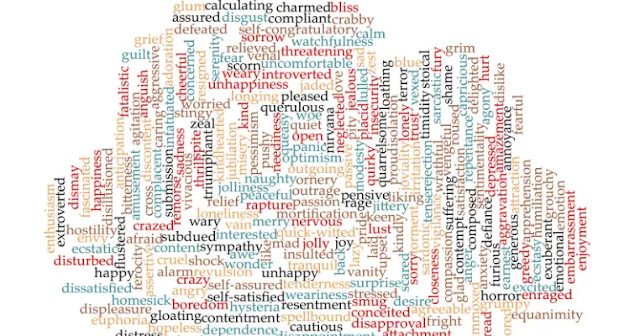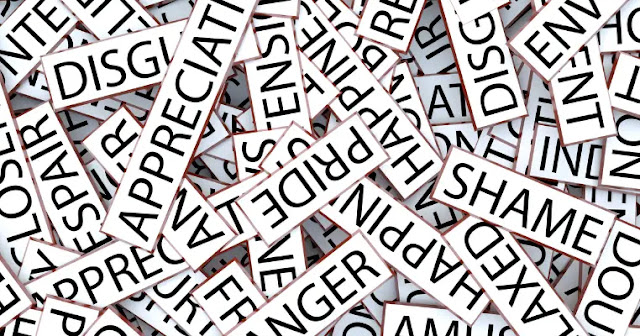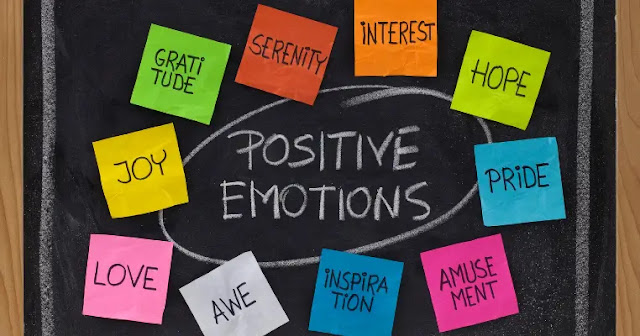Understanding Emotional Damage
Emotional damage refers to the negative impact on an individual's emotional well-being due to traumatic events, prolonged stress, or abusive relationships. This type of damage can have a significant impact on a person's ability to form healthy relationships, manage emotions, and function effectively in daily life. It often manifests in anxiety, depression, low self-esteem, and feelings of worthlessness.
Individuals who have experienced emotional damage may struggle to trust others, engage in self-destructive behaviors, and have difficulty coping with stress. In some cases, emotional damage can lead to physical health problems such as chronic pain or digestive issues.
It's important to understand that emotional damage is not a sign of weakness or a personal failing. Healing from emotional damage takes time, effort, and often the help of a mental health professional. Effective treatment may involve therapies such as cognitive-behavioral therapy, trauma-focused therapy, or mindfulness-based approaches.
Ignoring emotional damage can have long-term consequences on an individual's mental and physical health, as well as their relationships and career. Recognizing and addressing emotional damage is a vital step towards healing and moving forward in life.
Emotional damage is a significant issue that affects many individuals, and it is essential to prioritize healing and seeking professional support when needed. With time, effort, and proper treatment, individuals can overcome emotional damage and lead fulfilling, healthy lives.
Emotions are complex psychological and physiological responses that humans experience in response to external or internal stimuli. These responses involve changes in our thoughts, behaviors, and physical sensations. They play a critical role in our lives, affecting our decision-making, social interactions, and overall well-being.
From a scientific perspective, emotions are the result of the interaction between the limbic system, which is responsible for regulating our emotional responses, and the prefrontal cortex, which is responsible for rational thinking and decision-making. This interaction creates a feedback loop that influences our emotional responses and shapes our behavior.
Emotions are primarily regulated by neurotransmitters such as serotonin, dopamine, and norepinephrine. These chemicals help to transmit signals between neurons and play a vital role in regulating mood, motivation, and attention. Additionally, hormones such as cortisol and adrenaline also play a role in the emotional response by triggering the body's fight-or-flight response.
Different emotions can be triggered by different stimuli, such as fear in response to danger or joy in response to positive social interactions. Emotions can also be influenced by internal factors such as past experiences, beliefs, and values.
Research suggests that emotions are not solely psychological phenomena but also have a physical impact on the body. For example, stress and anxiety can cause physical symptoms such as headaches, muscle tension, and digestive issues.
Understanding emotions and their impact on our lives is an essential aspect of mental health and well-being. Developing emotional intelligence, which involves the ability to recognize, understand, and manage one's own emotions and those of others, can lead to better relationships, increased empathy, and improved mental health outcomes.
For those interested in learning more about emotions from a scientific perspective, the American Psychological Association's website provides an excellent resource. Their page on emotions offers a comprehensive overview of the science behind emotions, including their neural and physiological underpinnings, the role of emotions in human behavior, and how emotions can be regulated and managed.
Reference: American Psychological Association. (n.d.). Emotions. https://www.apa.org/topics/emotion.
Being emotional can manifest in a variety of ways, as emotions are complex and multifaceted experiences. However, some common signs of being emotional may include:
Intense or frequent mood swings: This can include sudden shifts in mood, feeling highly sensitive to criticism or rejection, or feeling easily overwhelmed by emotions.
Difficulty controlling emotions: This may include experiencing strong emotional reactions that are difficult to manage or feeling like emotions are "taking over" and interfering with daily life.
Changes in behavior: Emotional distress can cause changes in behavior, such as avoiding social situations, engaging in substance use, or experiencing changes in sleep patterns.
Physical symptoms: Emotions can also cause physical symptoms, such as headaches, muscle tension, fatigue, or digestive problems.
Difficulty focusing: When emotions are intense or overwhelming, it can be challenging to concentrate, complete tasks, or make decisions.
It's important to note that experiencing emotions is a normal part of being human, and everyone experiences emotions differently. However, if your emotions are causing significant distress or interfering with your daily life, it may be helpful to seek support from a mental health professional who can help you understand and manage your emotions more effectively.
Identifying emotional damage in individuals can be challenging, as it can manifest in a variety of ways and may not always be obvious. However, there are some signs that may indicate emotional damage, including:
Difficulty forming and maintaining healthy relationships: People who have experienced emotional damage may struggle to form healthy, supportive relationships with others. This could include difficulty trusting others, fear of abandonment, or feeling emotionally disconnected from others.
Intense emotional reactions: Emotional damage can cause people to experience intense emotional reactions to certain situations or triggers. This could include feeling easily overwhelmed, feeling angry or upset for no apparent reason, or having difficulty managing intense emotions.
Low self-esteem: People who have experienced emotional damage may struggle with low self-esteem or negative self-talk. This could manifest as a persistent feeling of worthlessness or a lack of confidence in their abilities.
Avoidance behaviors: People who have experienced emotional damage may engage in avoidance behaviors to protect themselves from further emotional pain. This could include avoiding social situations, withdrawing from relationships, or engaging in substance use or other unhealthy coping mechanisms.
Difficulty regulating emotions: Emotional damage can make it challenging for people to regulate their emotions effectively. This could include feeling overwhelmed by emotions, difficulty managing stress, or engaging in impulsive or self-destructive behaviors.
It's important to note that everyone experiences emotional damage differently, and not all people who experience these symptoms have necessarily experienced emotional damage. However, if you or someone you know is experiencing these symptoms and they are impacting daily life, it may be helpful to seek support from a mental health professional who can help with diagnosis and treatment.
When people are emotionally damaged, they may exhibit a variety of behaviors that can impact their relationships and daily life. Some common behaviors that may indicate emotional damage include:
Isolation and withdrawal: People who are emotionally damaged may withdraw from social situations, avoid making new connections, and spend more time alone.
Self-destructive behaviors: Emotional damage can lead people to engage in behaviors that are harmful to themselves, such as substance abuse, self-harm, or risky sexual behaviors.
Impulsive behaviors: People who are emotionally damaged may act impulsively, making decisions without considering the consequences, or engaging in behaviors that are reckless or self-destructive.
Difficulty trusting others: Emotional damage can cause people to have difficulty trusting others, leading to difficulty forming close relationships or feeling comfortable opening up to others.
Low self-esteem: People who are emotionally damaged may have a negative self-image, feeling unworthy or undeserving of love and attention.
Emotional dysregulation: Emotional damage can lead to difficulty regulating emotions, causing people to experience intense emotional reactions or feel emotionally numb.
It's important to note that everyone experiences emotional damage differently, and not all people who exhibit these behaviors have necessarily experienced emotional damage. However, if you or someone you know is experiencing these behaviors and they are impacting daily life, it may be helpful to seek support from a mental health professional who can help with diagnosis and treatment.
Overcoming emotional damage can be a challenging and complex process, and the steps to recovery may vary depending on individual circumstances. However, there are some strategies that may be helpful for people who are seeking to overcome emotional damage:
Seek support: Talking to a trusted friend or family member, or seeking support from a mental health professional, can be an important first step in the recovery process.
Practice self-care: Engaging in self-care activities such as exercise, meditation, and healthy eating can help reduce stress and improve overall well-being.
Challenge negative thoughts: People who have experienced emotional damage may have negative thoughts and beliefs about themselves or the world around them. Challenging these negative thoughts and replacing them with positive affirmations can be helpful in shifting to a more positive mindset.
Set boundaries: Setting boundaries can be an important part of recovery, as it allows people to protect themselves from further emotional damage.
Learn healthy coping strategies: Learning healthy coping strategies such as mindfulness, relaxation techniques, and cognitive-behavioral therapy can help people manage their emotions more effectively.
Process past experiences: Working with a mental health professional to process past experiences and gain a deeper understanding of how emotional damage has impacted them can be an important step in the recovery process.
It's important to note that recovery from emotional damage is a process, and it may take time to see progress. It's also important to seek professional help if you are struggling with emotional damage, as a mental health professional can provide additional support and guidance.
When someone is emotionally damaged, it can be helpful to build up good habits that can help promote emotional well-being and support the recovery process. Here are some habits that may be helpful:
Practice self-care: Engage in activities that promote relaxation, such as taking a warm bath, practicing meditation or yoga, or engaging in other forms of self-care that help you feel more relaxed and centered.
Express your emotions: Allow yourself to express your emotions in healthy ways, such as through journaling, art, or music. This can help you process your emotions in a safe and healthy way.
Set boundaries: Setting boundaries with others can help you protect yourself from further emotional damage. Practice saying no to things that don't feel right, and set limits on your time and energy.
Engage in healthy relationships: Seek out relationships with people who are supportive, understanding, and non-judgmental. Healthy relationships can help provide a sense of community and support.
Practice gratitude: Focusing on the things in your life that you are grateful for can help shift your perspective and promote feelings of positivity and well-being.
Seek professional help: Consider working with a mental health professional who can help you develop coping strategies and provide support as you work through the process of healing and recovery.
Building up these habits can take time, and it's important to be patient and compassionate with yourself as you work to improve your emotional well-being. It's also important to remember that recovery is a journey, and there may be setbacks along the way. However, with time, effort, and support, it is possible to overcome emotional damage and move forward in a positive direction.
One of the habits Sarah worked on was practicing self-care. She began to set aside time each day for activities that she enjoyed, such as reading, taking walks, and practicing yoga. She also made a point to prioritize sleep and eat healthy meals, which helped her feel more energized and focused throughout the day.
Sarah also worked on setting boundaries with others. She realized that in the past, she had allowed others to treat her poorly and had neglected her own needs in order to please others. She began to practice saying no to things that didn't feel right, and set limits on her time and energy. This helped her feel more in control of her life and better able to take care of herself.
Finally, Sarah practiced gratitude. She began to keep a gratitude journal, where she wrote down things she was thankful for each day. This helped her shift her perspective and focus on the positive things in her life, which helped boost her mood and improve her overall sense of well-being.
Over time, these habits helped Sarah to recover from emotional damage and feel more confident and empowered in her daily life. While the recovery process was not always easy, she learned that building healthy habits was an important step in moving forward and creating a positive future for herself.
Gentle yoga: Gentle yoga is a slower-paced practice that focuses on gentle stretches and breathing exercises. It can be a helpful practice for individuals who are experiencing emotional distress, as it can help promote relaxation and calm the mind.
Restorative yoga: Restorative yoga is a deeply relaxing practice that involves holding poses for extended periods of time. It can help calm the nervous system and promote deep relaxation and healing.
Yin yoga: Yin yoga is a practice that involves holding poses for longer periods of time to promote deep stretching and relaxation. It can help release tension in the body and promote emotional healing.
Yoga nidra: Yoga nidra is a form of guided meditation that promotes deep relaxation and can help reduce stress and anxiety. It can be a helpful practice for individuals who are experiencing emotional distress.
Pranayama: Pranayama is a series of breathing exercises that can help promote relaxation and reduce stress. It can be a helpful practice for individuals who are experiencing emotional distress and can be easily incorporated into a yoga practice.
It's important to remember that yoga is just one tool that can be helpful in the recovery process. It's important to seek professional help if you are struggling with emotional damage, as a mental health professional can provide additional support and guidance as you work towards healing and recovery.
In conclusion, emotional damage can have a significant impact on an individual's life and well-being. It can lead to a range of negative emotions and behaviors, including anxiety, depression, low self-esteem, and difficulty forming healthy relationships. However, by identifying the signs of emotional damage and working to develop healthy habits, individuals can take important steps towards healing and recovery. Seeking professional help, practicing self-care, setting boundaries, and incorporating practices like yoga into one's routine can all be helpful in promoting emotional well-being and building resilience. While the road to recovery may not always be easy, taking these steps can help individuals move forward and create a positive future for themselves.
Disclaimer: The information provided above is for educational purposes only and should not be taken as expert advice. While we strive to provide accurate and up-to-date information, the content is not intended to be a substitute for professional advice, diagnosis, or treatment. Please seek the guidance of a qualified professional if you have questions or concerns about your emotional well-being. We do not endorse any specific products, services, or treatments mentioned in this conversation.
Ignoring emotional damage can have long-term consequences on an individual's mental and physical health, as well as their relationships and career. Recognizing and addressing emotional damage is a vital step towards healing and moving forward in life.
Emotional damage is a significant issue that affects many individuals, and it is essential to prioritize healing and seeking professional support when needed. With time, effort, and proper treatment, individuals can overcome emotional damage and lead fulfilling, healthy lives.
Understand what emotion is as per science
From a scientific perspective, emotions are the result of the interaction between the limbic system, which is responsible for regulating our emotional responses, and the prefrontal cortex, which is responsible for rational thinking and decision-making. This interaction creates a feedback loop that influences our emotional responses and shapes our behavior.
Emotions are primarily regulated by neurotransmitters such as serotonin, dopamine, and norepinephrine. These chemicals help to transmit signals between neurons and play a vital role in regulating mood, motivation, and attention. Additionally, hormones such as cortisol and adrenaline also play a role in the emotional response by triggering the body's fight-or-flight response.
Different emotions can be triggered by different stimuli, such as fear in response to danger or joy in response to positive social interactions. Emotions can also be influenced by internal factors such as past experiences, beliefs, and values.
Research suggests that emotions are not solely psychological phenomena but also have a physical impact on the body. For example, stress and anxiety can cause physical symptoms such as headaches, muscle tension, and digestive issues.
Understanding emotions and their impact on our lives is an essential aspect of mental health and well-being. Developing emotional intelligence, which involves the ability to recognize, understand, and manage one's own emotions and those of others, can lead to better relationships, increased empathy, and improved mental health outcomes.
For those interested in learning more about emotions from a scientific perspective, the American Psychological Association's website provides an excellent resource. Their page on emotions offers a comprehensive overview of the science behind emotions, including their neural and physiological underpinnings, the role of emotions in human behavior, and how emotions can be regulated and managed.
Reference: American Psychological Association. (n.d.). Emotions. https://www.apa.org/topics/emotion.
Common signs of being emotional
Intense or frequent mood swings: This can include sudden shifts in mood, feeling highly sensitive to criticism or rejection, or feeling easily overwhelmed by emotions.
Difficulty controlling emotions: This may include experiencing strong emotional reactions that are difficult to manage or feeling like emotions are "taking over" and interfering with daily life.
Changes in behavior: Emotional distress can cause changes in behavior, such as avoiding social situations, engaging in substance use, or experiencing changes in sleep patterns.
Physical symptoms: Emotions can also cause physical symptoms, such as headaches, muscle tension, fatigue, or digestive problems.
Difficulty focusing: When emotions are intense or overwhelming, it can be challenging to concentrate, complete tasks, or make decisions.
It's important to note that experiencing emotions is a normal part of being human, and everyone experiences emotions differently. However, if your emotions are causing significant distress or interfering with your daily life, it may be helpful to seek support from a mental health professional who can help you understand and manage your emotions more effectively.
How to identify "emotional damage" in individuals?
Difficulty forming and maintaining healthy relationships: People who have experienced emotional damage may struggle to form healthy, supportive relationships with others. This could include difficulty trusting others, fear of abandonment, or feeling emotionally disconnected from others.
Intense emotional reactions: Emotional damage can cause people to experience intense emotional reactions to certain situations or triggers. This could include feeling easily overwhelmed, feeling angry or upset for no apparent reason, or having difficulty managing intense emotions.
Low self-esteem: People who have experienced emotional damage may struggle with low self-esteem or negative self-talk. This could manifest as a persistent feeling of worthlessness or a lack of confidence in their abilities.
Avoidance behaviors: People who have experienced emotional damage may engage in avoidance behaviors to protect themselves from further emotional pain. This could include avoiding social situations, withdrawing from relationships, or engaging in substance use or other unhealthy coping mechanisms.
Difficulty regulating emotions: Emotional damage can make it challenging for people to regulate their emotions effectively. This could include feeling overwhelmed by emotions, difficulty managing stress, or engaging in impulsive or self-destructive behaviors.
It's important to note that everyone experiences emotional damage differently, and not all people who experience these symptoms have necessarily experienced emotional damage. However, if you or someone you know is experiencing these symptoms and they are impacting daily life, it may be helpful to seek support from a mental health professional who can help with diagnosis and treatment.
Common behaviors when people are emotionally damaged.
Isolation and withdrawal: People who are emotionally damaged may withdraw from social situations, avoid making new connections, and spend more time alone.
Self-destructive behaviors: Emotional damage can lead people to engage in behaviors that are harmful to themselves, such as substance abuse, self-harm, or risky sexual behaviors.
Impulsive behaviors: People who are emotionally damaged may act impulsively, making decisions without considering the consequences, or engaging in behaviors that are reckless or self-destructive.
Difficulty trusting others: Emotional damage can cause people to have difficulty trusting others, leading to difficulty forming close relationships or feeling comfortable opening up to others.
Low self-esteem: People who are emotionally damaged may have a negative self-image, feeling unworthy or undeserving of love and attention.
Emotional dysregulation: Emotional damage can lead to difficulty regulating emotions, causing people to experience intense emotional reactions or feel emotionally numb.
It's important to note that everyone experiences emotional damage differently, and not all people who exhibit these behaviors have necessarily experienced emotional damage. However, if you or someone you know is experiencing these behaviors and they are impacting daily life, it may be helpful to seek support from a mental health professional who can help with diagnosis and treatment.
How to overcome the emotionally damaged situation?
Seek support: Talking to a trusted friend or family member, or seeking support from a mental health professional, can be an important first step in the recovery process.
Practice self-care: Engaging in self-care activities such as exercise, meditation, and healthy eating can help reduce stress and improve overall well-being.
Challenge negative thoughts: People who have experienced emotional damage may have negative thoughts and beliefs about themselves or the world around them. Challenging these negative thoughts and replacing them with positive affirmations can be helpful in shifting to a more positive mindset.
Set boundaries: Setting boundaries can be an important part of recovery, as it allows people to protect themselves from further emotional damage.
Learn healthy coping strategies: Learning healthy coping strategies such as mindfulness, relaxation techniques, and cognitive-behavioral therapy can help people manage their emotions more effectively.
Process past experiences: Working with a mental health professional to process past experiences and gain a deeper understanding of how emotional damage has impacted them can be an important step in the recovery process.
It's important to note that recovery from emotional damage is a process, and it may take time to see progress. It's also important to seek professional help if you are struggling with emotional damage, as a mental health professional can provide additional support and guidance.
Some good habits to build up when someone is emotionally damaged.
Practice self-care: Engage in activities that promote relaxation, such as taking a warm bath, practicing meditation or yoga, or engaging in other forms of self-care that help you feel more relaxed and centered.
Express your emotions: Allow yourself to express your emotions in healthy ways, such as through journaling, art, or music. This can help you process your emotions in a safe and healthy way.
Set boundaries: Setting boundaries with others can help you protect yourself from further emotional damage. Practice saying no to things that don't feel right, and set limits on your time and energy.
Engage in healthy relationships: Seek out relationships with people who are supportive, understanding, and non-judgmental. Healthy relationships can help provide a sense of community and support.
Practice gratitude: Focusing on the things in your life that you are grateful for can help shift your perspective and promote feelings of positivity and well-being.
Seek professional help: Consider working with a mental health professional who can help you develop coping strategies and provide support as you work through the process of healing and recovery.
Building up these habits can take time, and it's important to be patient and compassionate with yourself as you work to improve your emotional well-being. It's also important to remember that recovery is a journey, and there may be setbacks along the way. However, with time, effort, and support, it is possible to overcome emotional damage and move forward in a positive direction.
A real-life example.
Sarah had experienced emotional damage from an abusive relationship, which left her feeling anxious, depressed, and struggling with low self-esteem. She decided to seek help from a mental health professional and worked with them to develop healthy habits that could support her emotional well-being.One of the habits Sarah worked on was practicing self-care. She began to set aside time each day for activities that she enjoyed, such as reading, taking walks, and practicing yoga. She also made a point to prioritize sleep and eat healthy meals, which helped her feel more energized and focused throughout the day.
Sarah also worked on setting boundaries with others. She realized that in the past, she had allowed others to treat her poorly and had neglected her own needs in order to please others. She began to practice saying no to things that didn't feel right, and set limits on her time and energy. This helped her feel more in control of her life and better able to take care of herself.
Finally, Sarah practiced gratitude. She began to keep a gratitude journal, where she wrote down things she was thankful for each day. This helped her shift her perspective and focus on the positive things in her life, which helped boost her mood and improve her overall sense of well-being.
Over time, these habits helped Sarah to recover from emotional damage and feel more confident and empowered in her daily life. While the recovery process was not always easy, she learned that building healthy habits was an important step in moving forward and creating a positive future for herself.
Yoga that might help recovery from emotionally damaged situations.
Yoga can be a helpful practice for individuals recovering from emotionally damaged situations. It can help promote relaxation, reduce stress, and improve overall emotional well-being. Here are some yoga practices that may be helpful for recovery:Gentle yoga: Gentle yoga is a slower-paced practice that focuses on gentle stretches and breathing exercises. It can be a helpful practice for individuals who are experiencing emotional distress, as it can help promote relaxation and calm the mind.
Restorative yoga: Restorative yoga is a deeply relaxing practice that involves holding poses for extended periods of time. It can help calm the nervous system and promote deep relaxation and healing.
Yin yoga: Yin yoga is a practice that involves holding poses for longer periods of time to promote deep stretching and relaxation. It can help release tension in the body and promote emotional healing.
Yoga nidra: Yoga nidra is a form of guided meditation that promotes deep relaxation and can help reduce stress and anxiety. It can be a helpful practice for individuals who are experiencing emotional distress.
Pranayama: Pranayama is a series of breathing exercises that can help promote relaxation and reduce stress. It can be a helpful practice for individuals who are experiencing emotional distress and can be easily incorporated into a yoga practice.
It's important to remember that yoga is just one tool that can be helpful in the recovery process. It's important to seek professional help if you are struggling with emotional damage, as a mental health professional can provide additional support and guidance as you work towards healing and recovery.
Conclusion
Disclaimer: The information provided above is for educational purposes only and should not be taken as expert advice. While we strive to provide accurate and up-to-date information, the content is not intended to be a substitute for professional advice, diagnosis, or treatment. Please seek the guidance of a qualified professional if you have questions or concerns about your emotional well-being. We do not endorse any specific products, services, or treatments mentioned in this conversation.












0 Comments